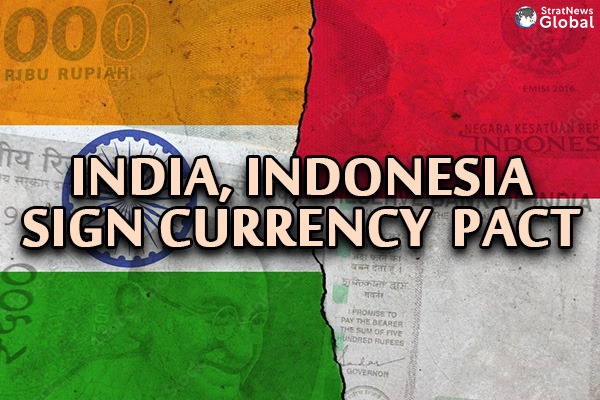The Reserve Bank of India (RBI) and the Bank of Indonesia signed an MoU to establish a framework to promote the use of local currencies said an RBI statement on Thursday.
The MoU was signed by RBI Governor Shaktikanta Das and the Governor of Bank of Indonesia, Perry Warjiyo will, according to the statement, will “promote the use of local currencies viz., the Indian Rupee (INR) and the Indonesian Rupiah (IDR) for cross-border transactions,” according to the statement.
“The MoU covers all current account transactions, permissible capital account transactions and any other economic and financial transactions as agreed upon by both countries. This framework would enable exporters and importers to invoice and pay in their respective domestic currencies, which in turn would enable the development of an INR-IDR foreign exchange market. Use of local currencies would optimise costs and settlement time for transactions,” the statement said.
The MoU is the second such MoU to be signed by India with another country, the first one of which was the UAE. According to the Financial Express, the RBI had signed two MoUs with the Central Bank of the UAE for cross border transactions. This was done on July 15 last year.
The MoUs were signed between RBI Governor Shri Shaktikanta Das and the Governor of the Central Bank of UAE, H.E. Khaled Mohamed Balama in the presence of Prime Minister Narendra Modi and His Highness Sheikh Mohamed Bin Zayed Al Nahyan in Abu Dhabi.
Prime Minister Modi was on an official visit to the UAE at the time.
According to the RBI release, a framework for the use of the Local Currency Settlement System (LCSS) had been put in place to promote the use of respective currencies in both countries. According to the RBI release. “Creation of the LCSS would enable exporters and importers to invoice and pay in their respective domestic currencies, which in turn would enable the development of an INR-AED foreign exchange market. This arrangement would also promote investments and remittances between the two countries. Use of local currencies would optimise transaction costs and settlement time for transactions, including for remittances from Indians residing in UAE.”
The release added that the “two central banks agreed to cooperate on (a) linking their Fast Payment Systems (FPSs) – Unified Payments Interface (UPI) of India with Instant Payment Platform (IPP) of UAE; (b) linking the respective Card Switches (RuPay switch and UAESWITCH); and (c) exploring the linking of payments messaging systems i.e., Structured Financial Messaging System (SFMS) of India with the messaging system in the UAE.”
















